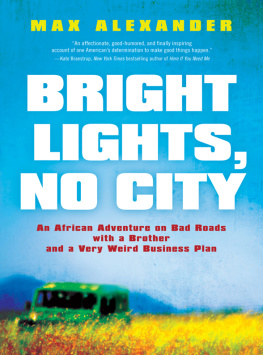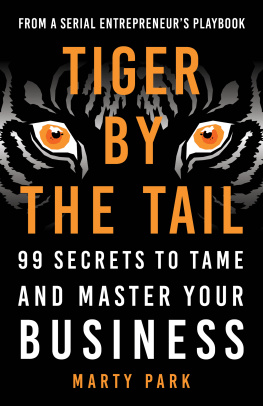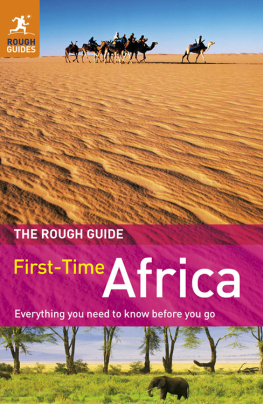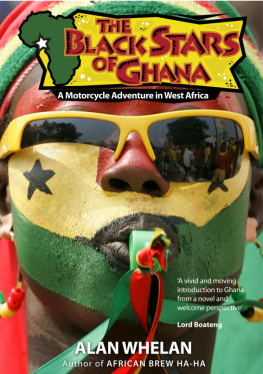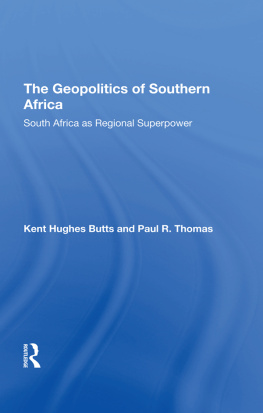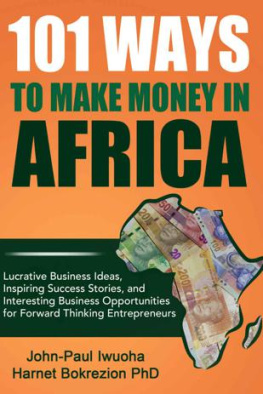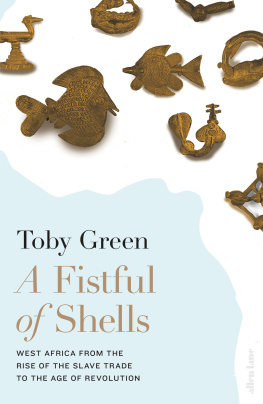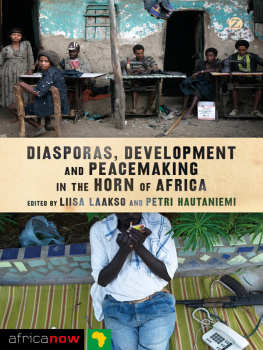
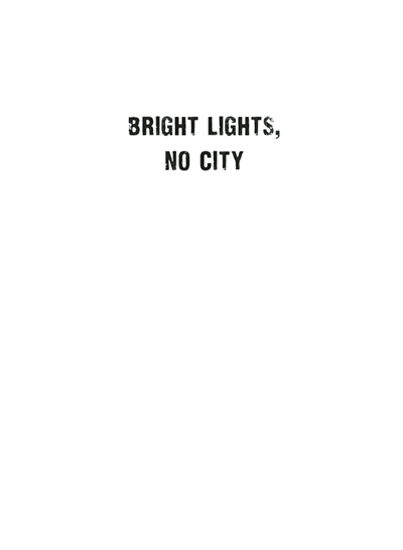
CONTENTS
1. Beyond the Horizon
I t was mid-morning and the gong-gong man was drunk. We sat, visitors in cheap folding camp chairs from the back of our Tata pickup truck and villagers in molded plastic patio chairs, under the canopy of a mango tree thick with weaver nests that hung like Christmas ornaments. The village of Ampedwae, near the regional capital of Koforidua, is like countless others in Ghanacountless because many are not on the government maps or even on an actual road and may go by several different names, depending on whom you ask and whether they speak Twi, Ewe, Ga, Hausa, or one of the more than seventy other languages and dialects of the country, not counting the official English.
Villages in Ghana often have names that are devotional or inspirational in meaning. Ampedwae means you should not boast in Akwapim (the dialect of Twi spoken here)advice the village seems to have taken to heart. Other than a stuccoed blue-and-beige schoolhouse, the built environment of Ampedwae is barely removed from the natural world: just a few dozen rectangular wattle-and-daub huts with bamboo or raffia roofs, their mud walls slowly melting from the rain back into the landscape, as if smeared together in wet oils by an artist. There would be no rain today; January is the dry season, which is one of the only ways to distinguish seasons in a country where every day of the year is hot and begins and ends around six oclock. In January all of West Africa is dry, and the wind known as the Harmattan picks up the Sahara Desertall 3.5 million square miles of it, as far as I could telland blows it south to the Gulf of Guineaa thick, choking haze that stings your eyes and clogs your nose with the same brick-red dust that coats the broad leaves of the banana palms. Ampedwaeno electricity, no wellis bisected by a road of the same red dirt, and whenever a beaten Nissan bush taxi bounces by at high speed (which is the only speed driven in Ghana), it churns up a wall of dust that breaks like a tsunami over the squat village, scattering chickens and goats.
Okay! The gong-gong man rose shakily from his seat under the mango tree, stood at attention, and saluted us crisply with his right hand. In his left hand he held the village gong-gong, which is a hand-forged cowbell, and a foot-long stick. He wore brown polyester pants, sandals, and a filthy tan bowling shirt missing several buttons. In the back pocket of his slacks was jammed a liter-sized bottle of local gin, which must have made sitting as difficult as its contents had evidently made standing. He spoke rapidly in a slur as hard to grasp as mercury, while scribbling the air with his stick. I trained my digital camera on him and shifted the switch to video, which is why I know exactly what he said: I know ya I say now listen up, so yo-yo come, ya make goo-gong. Okay. (Two raps of the gong-gong with the stick.) Good-morning-good-morning-good-morning! How are you? Thank you! You are always will be here. You come and speak to us in under the good to Arno. Jesus la-la, Ampedwae, thats right. I going out now call every Jedi better come now and cure the sow.
At least thats what I got. It could have been a figure of speech. Thank you, he concluded with a low bow. God bless! And he staggered down the road banging the gong-gong and announcing in Twi, Aggo! Aggo! Listen up!
Soon more villagers, alerted by the dull clang of the gong-gong, joined those already assembled under the tree. It was Thursday, which is rest day in Ampedwaemeaning the men were not tending their small cassava and cocoa plots and thus available for a town meeting. In theory the children would be at school, but although public school is free, many Ghanaian families cannot afford the required uniforms and books; children are also needed for laborcaring for smaller children, hauling water and wood, and tending animals. So throngs of barefoot kids in underwear waved from across the road, squealing Obruni! Obruni! which is Twi for beyond the horizon but in Ghana universally means white man. (The Ewe slang for white man, yevu, seems to have originally meant trickster dog, although this is debated.)
The children knew better than to cross the road. Important town meetings are for adults, and children in Ghana keep a prudent distance from their eldersnot just out of respect. In Ghana if you beat someone elses child, his parents will thank you; the child must have deserved it. Other than Harper, my seventeen-year-old son, the only minor under the mango tree was an infant sucking at his mothers breast. She was one of just three women in the group of more than thirty. Where are all the women? I whispered to Jan Watson, who was sitting next to me in one of our camp chairs.
Busy, she said. Somebody has to pound the fufu, she added, referring to one of the national staplesboiled cassava and plantain pulverized in giant wooden mortars and formed into dumplinglike balls that are eaten by hand, dipped in peanut or palm nut soup. But soon enough the women straggled up, abandoning their long fufu pestles, and the meeting began. Ghanaians respect traditional gender boundarieswomen cook and carry towering loads on their heads, men farm and carry machetes, sometimes on their headsbut some ethnic groups, like the Ashanti, are matrilineal: status is determined by your mothers family, a practical arrangement considering it is generally easier to be certain of your mother than your father. And in much of this predominantly Christian country, even Islamic women hold jobs, vote, frequent beauty salons (in roadside shacks on virtually every block), and allow the men to pretend they are in charge.
Around strangers Ghanaians are formal, even courtly, so the first order of business was to shake hands with several of the important eldersending with the village chief, a modest but mildly officious middle-aged man who seemed like the type who would refer to Roberts Rules of Order at an Elks Club meeting. His attire, an orange sport shirt and impeccably pressed sage green slacks, would not have looked out of place at the Seal Harbor Yacht Club. Every handshake ended with the elaborate Ghanaian mutual finger snap, along with the standard greeting You are welcome!used in Ghana as we would say Welcome to my home and not as a rejoinder to Thank you. The local dignitaries moved down the receiving line, ending with my brother Whit.
Whit was born a few weeks before Barack Obama, who at age forty-seven had been sworn in as President the previous week. He is four years younger than I yet even grayer, his hair having progressed at a relatively young age to Steve Martin silver. He was wearing trendy gunmetal eyeglasses, a batik print shirt, high-tech travel pants, and khaki Crocsthe standard uniform of the hip West Coast entrepreneur. Ties are for losers, Whit once told me.
Not that anyone in Ampedwae would have known that. In Ghana, a necktie means you are an important person, a college man, possibly even a Big Man, with a good job that doesnt require a machete. You might even work in an office thats air-conditioned and be able to sleep at your desk. Appearances matter: this is why Ghanaian men with office jobs tolerate ties and double-breasted woolen suits in blast-furnace climatic conditions. So Whit was bucking local custom, but he bowed formally as each village elder shook his hand. Then everyone sat down and waited for him to talk.
Good morning, Whit began. Mente Twi. His admission that he did not speak Twi seemed to amuse the villagers, both for its contradiction (didnt he just say that in Twi?) and its self-evidence (white people rarely speak Twi). We are starting a new company and we want to tell you about it, he continued. Its a new way to use batteries that we think you will like. But first Id like to tell you a little about myself. My name is Whit Alexander, and I am American.
Next page
